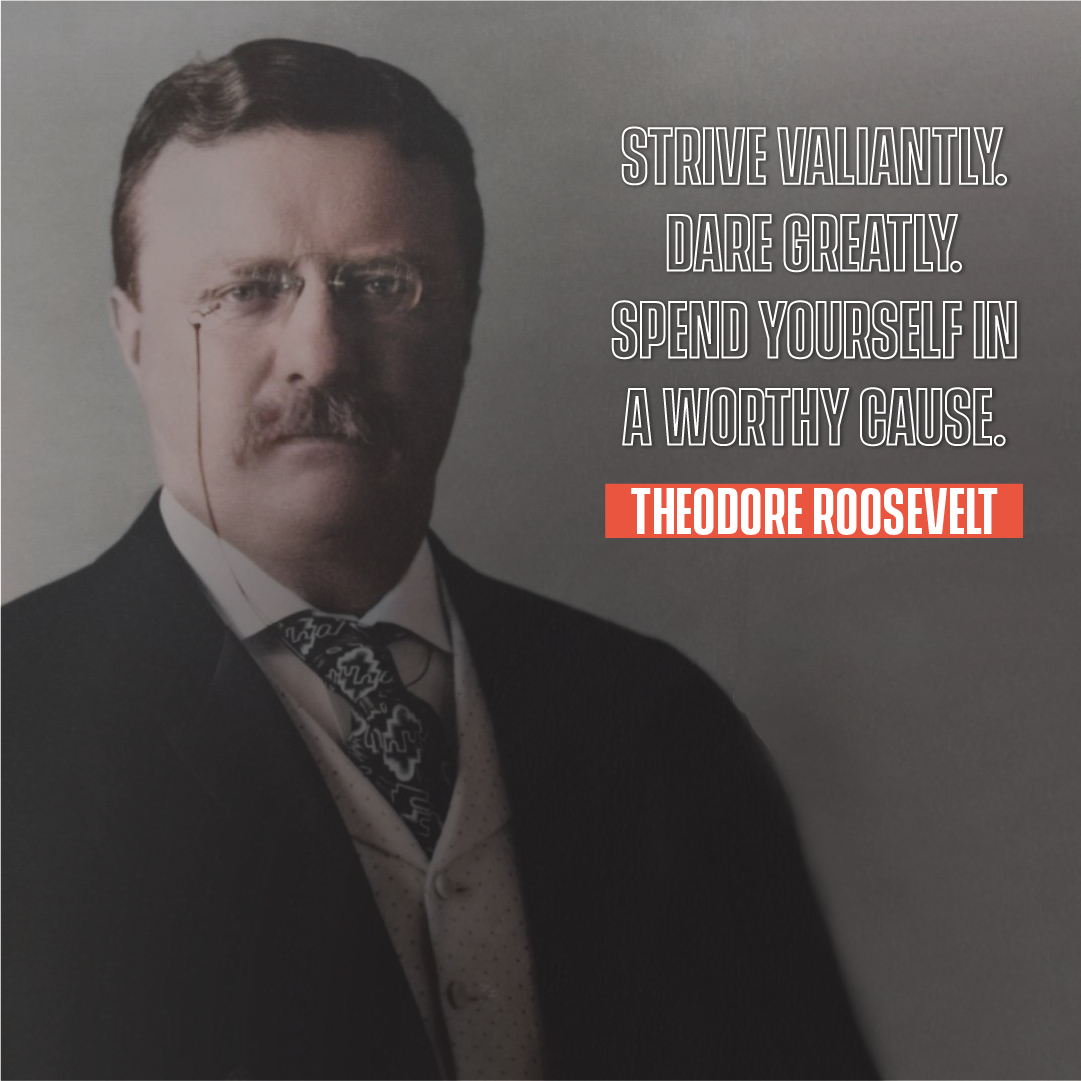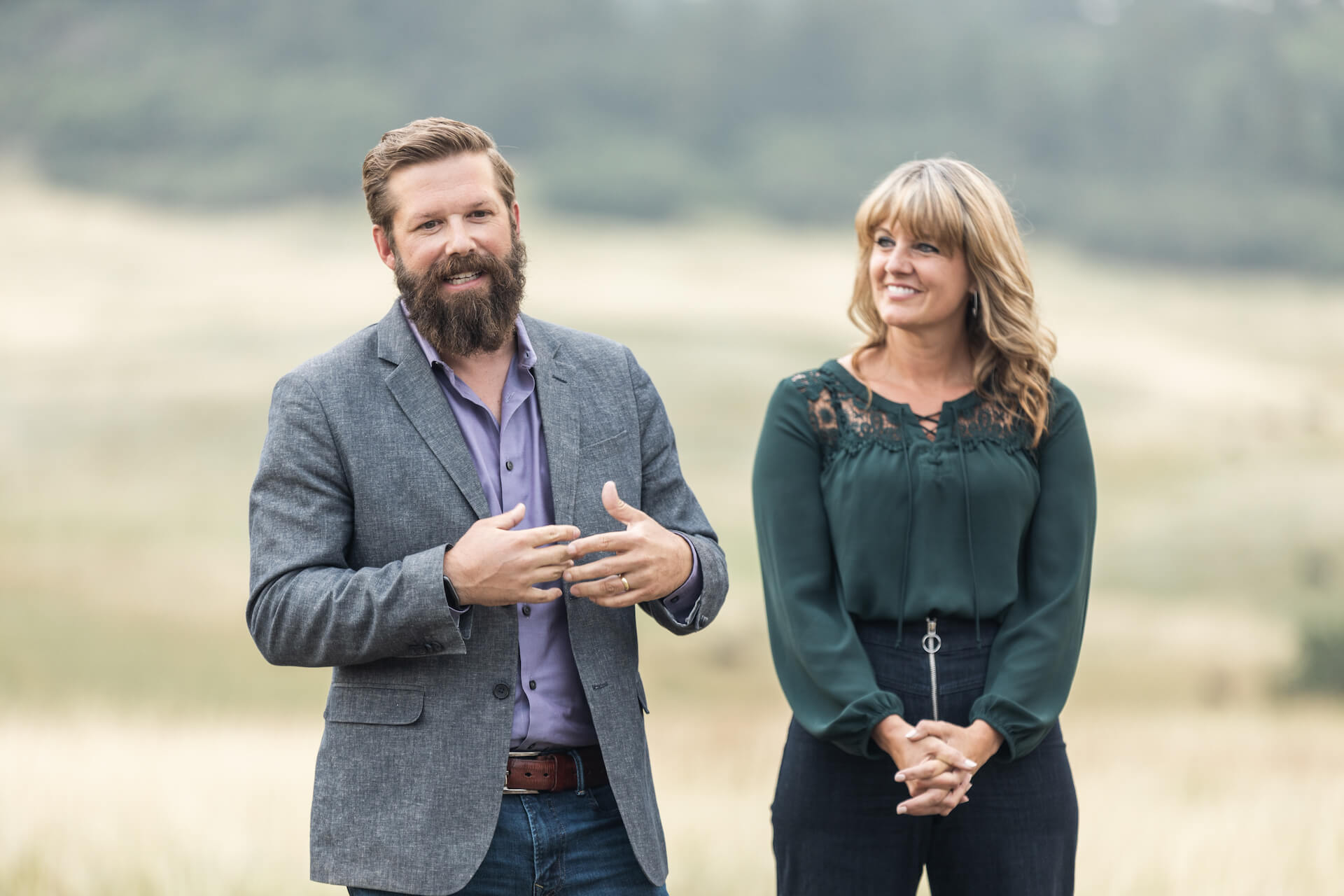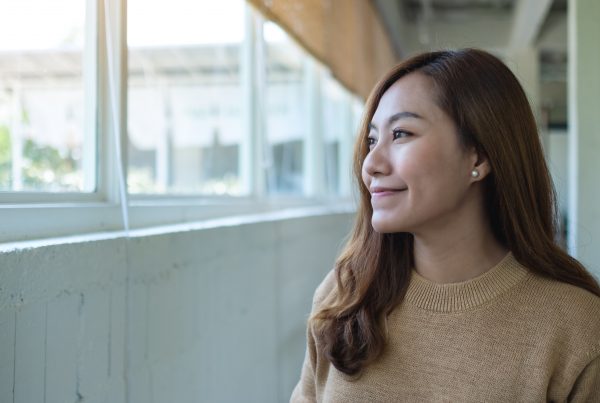Matt Parker, The Exodus Road’s co-founder, first encountered human trafficking when he and his wife, Laura Parker, moved to Thailand in 2010. Together, they directed a children’s home for girls from the hill tribes of Northern Thailand. In their work, they learned that these marginalized girls were some of the most at risk of human trafficking.
As Matt learned more about this serious issue, he began to network with local nonprofits and law enforcement. Eventually, he was deputized by police to help investigate human trafficking crime. After taking part in hundreds of investigations throughout Southeast Asia with police, Matt and Laura began The Exodus Road in January of 2012. (Watch the story of how two ordinary people started a nonprofit fighting human trafficking.)
Matt served as CEO of The Exodus Road for nearly 10 years, and now he serves the organization as a strategist and consultant for global operations, working with our national teams and law-enforcement partners.
With this wealth of experience in anti-trafficking efforts, we wanted to sit down with Matt to learn from his insights on fighting modern-day slavery.
Matt Parker, Co-Founder, The Exodus Road
Q&A with Matt Parker
Q: Much of the work of The Exodus Road focuses on investigating human trafficking crime. Why do you take this approach?
A: When my wife Laura and I were living and working in Thailand, I served in a collaborative working group with other NGOs and the Thai police. We were researching the obstacles the police and authorities faced in fighting human trafficking crime.
We began to understand that it was really difficult to gather the evidence necessary for successful operations that would result in victim rescues and trafficker arrests and prosecutions. Over the course of our research, we learned that police needed intelligence, technology, training, and resources.
While participating in this working group, I was asked to go undercover and follow a lead of potential child sex trafficking. After that initial mission, I was deputized by the Thai police as an informant and began working with them to gather evidence of sex trafficking — especially cases involving minors.
As I did this work with police in Thailand, I began to imagine having greater impact by training and equipping other people to do what I was doing — assisting police in fighting human trafficking crime. My wife Laura and I were talking one morning on our porch in Thailand, and we started dreaming of starting a nonprofit that could do this work with us.
Of course, at the time, we weren’t sure if a charity like this would work. Human trafficking is a complex field that’s so often misunderstood. Gathering evidence of trafficking crime is high risk, and we were working in corrupt environments. There was so much stacked against us. But, over time, we kept moving forward and courageous people started to help us. The Exodus Road as of 2021, has supported over 1,500 survivors in that walk towards freedom, and the numbers keep growing daily.
Bonus: Hear Matt talk about a rescue that was 7 years in the making.
Matt speaks with survivor care leaders in Latin America.
Q: What’s one trend in anti-trafficking work that excites you?
A: The use of AI and digital intelligence to fight human trafficking is very exciting. Trafficking syndicates are smart and some of them are making enormous money on the exploitation of the vulnerable. The trends we are seeing are that much of these sales are going online. We work with several tech firms in leveraging current technological advances to build case evidence for trafficking. This is a game-changer for the anti-trafficking field.
Not only is this an exciting trend for those here in the US, but The Exodus Road has helped to train and deliver some of this technology to law enforcement partners internationally, and we are seeing their casework efficacy greatly increase.
Q: What is one thing you think parents should know about human trafficking?
Exploitation is much closer than you think, and it can often start right on your child’s phone. We need to figure out how to better protect kids from sexual exploitation and sexually explicit materials on social media and the internet. I see it over and over again — unsuspecting kids become victims of sex trafficking or exploitation right from their own phones, and their parents have no idea.
There are so many web services and products out there to help parents with digital safety, but so many are so difficult to implement and kids can learn how to get around the system. I would encourage parents to look honestly into their child’s activity and relationships online, have open conversations with them, and pursue tools to restrict and monitor their social media, internet activity, and online profiles.
Keep Learning: 10 Tools to Keep Your Kids Safe Online
Q: What is the one book that you recommend people read and why?
A: My international work was most greatly shaped by the book When Helping Hurts by Steve Corbett and Brian Fikkert. As I began to build the structure and ethos of The Exodus Road, this book really shaped the way I viewed relationships and development cross-culturally. It helped me to see the damage often caused by the traditional Western approach and how disempowering it can be to national communities. It helped me to understand that partnerships and equipping national leaders as the experts and the primary agents for change in their own countries was critical for systemic change.
Q: What advice would you give your younger self?
A: Don’t neglect your family for the sake of success. Despite what everyone around you might say, sacrificing your family is not worth it. Your relationships matter the most at the end of the day.
Work-life balance is so important, and I wish my younger self would have not brought work home as much. It’s stressful and complex to launch a nonprofit fighting human trafficking. But I wish I would have done a better job in the earlier years of having better balance, moving a bit slower, and not bringing the stresses of work into home life as much.
Q: What is your favorite quote?
A: My favorite quote is from Theodore Roosevelt:
“It is not the critic who counts; not the man who points out how the strong man stumbles, or where the doer of deeds could have done them better. The credit belongs to the man who is actually in the arena, whose face is marred by dust and sweat and blood; who strives valiantly; who errs, who comes short again and again, because there is no effort without error and shortcoming; but who does actually strive to do the deeds; who knows great enthusiasms, the great devotions; who spends himself in a worthy cause; who at the best knows, in the end, the triumph of high achievement, and who at the worst, if he fails, at least fails while daring greatly, so that his place shall never be with those cold and timid souls who neither know victory nor defeat.”

I love this quote from Roosevelt because it describes my life. It’s been about taking great risks to do good in the world, to fight against human trafficking and all its darkness. I’ve had my fair share of people in the stands launching their criticisms. But I’ve had to learn to overcome that and stay in the arena and keep fighting for the protection of the vulnerable. People in the stands won’t understand what it’s like to take the blows and the risks. And that’s OK. Because life in the arena is really the only kind of life that moves great movements forward.
The Exodus Road: A Wife's Journey into Sex Trafficking and Rescue
Download our free eBook today. You’ll also receive occasional emails from us with stories from the frontlines, educational resources, and opportunities to fight human trafficking.







